In This Issue:
MASSACHUSETTS
- Taking a stand against racism and police brutality
- Clean Water Action responds to COVID-19
- Safe Cleaning and Disinfection in the Age of Coronavirus
- #IStandWithMashpee
- Re-elect Ed Markey to the US Senate
RHODE ISLAND
CONNECTICUT
Taking a stand against racism and police brutality
As an organization dedicated to the creation and preservation of a healthy environment for all we are appalled and sickened by the recent murders of Black people by police (George Floyd and Breonna Taylor) as well as police complicity with vigilante murder (Ahmaud Arbery). Their names are added to a long list of Black, Indigenous and People of Color (BIPOC) killed by police and white supremacists, almost entirely with impunity.
This reveals a pandemic of institutionalized racism, more starkly evident with the backdrop of the coronavirus pandemic that continues to kill people of color in vastly disproportionate numbers. Clean Water has been dedicated to fighting the longstanding epidemic of environmental racism that subjects BIPOC to the ravages of polluted water, land, and air, leading to illness, injury and early death in these populations (with systemic response to COVID following the same pattern). The recent overt killings also follow this pattern of institutionalized racism and demand our attention.
We stand in solidarity with all those across New England and the country who are mourning losses, and join those who are demanding justice and systemic change. Police brutality must stop now. Individuals and institutions that have killed people of color must be brought to justice. Racism in all its forms must end.
MASSACHUSETTS
Clean Water Action responds to COVID-19
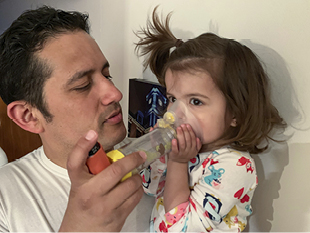
COVID-19 has changed how the Clean Water Action staff work, but it hasn’t changed our guiding principles. Environmental justice, economic justice and public health go hand in hand. This spring, that has been made plain for all to see as low income communities and communities of color are disproportionately impacted by the COVID-19 crisis. When people are able to meet basic needs like access to water, heat, and electricity, public health improves. In Massachusetts, in addition to continuing our work on water, toxics, energy, and elections by shifting our organizing and education programs online, we have joined a wide variety of groups calling for leadership in the state legislature and governor’s office to pass measures like sick time for struggling essential workers. We’re also taking on new issues, like making sure that people have access to their utilities and aren’t shut off as we recover from the pandemic.
On May 5th, Clean Water helped to organize an Asthma Justice “Virtual Town Hall” and Call to Action. Together with our Green Justice Coalition partners, we gathered with health professionals and academics, families from “asthma capitals” in our state which have among the highest asthma burdens in the country, and Representative Adrian Madaro (D-Chelsea) to call for immediate and broad action. Chelsea GreenRoots leader Maria Belen Power noted, “as World Asthma Day approaches, I can’t help but think of the deeply entrenched health inequities in our communities. As a mother of a 2-year old daughter with an early asthma diagnosis, I think of all of my neighbors and community members suffering from severe upper respiratory illnesses. Our community, a low income, and immigrant community has for too long disproportionately suffered from air pollution and environmental hazards, putting our lives at a higher risk. COVID-19 has starkly exposed those inequities. We deserve to live longer and healthier lives.” To help press for the environmental justice reforms that will reduce burdens in communities like Chelsea, urge your state legislators to support H.S.453, S.464, and H.4264 — An Act relative to Environmental Justice.
We have been inspired by the online response, and are grateful that you’re looking for connection and ways to make a difference just like we are. We’ve put together a list of ways you can help, be helped, and hopefully have some fun along the way (find out more at https://www.cleanwater.org/stuck-inside). The work for a clean, just, and healthy environment never stops — so please check back regularly for updates!
Thank you to all of you who are able to help protect the public health of our communities by sheltering-in-place and practicing social distancing — everything we do now helps save lives.
Safe Cleaning and Disinfection in the Age of Coronavirus
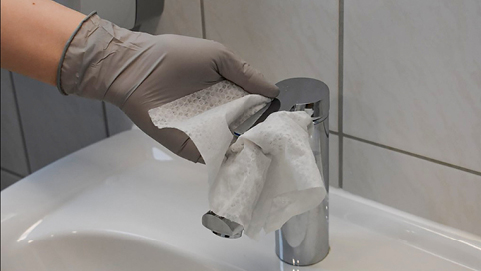
The coronavirus has put new emphasis on the role cleaning plays in keeping us safe from illness. But, some of the products that work against coronavirus may increase risk of other acute or chronic health problems.
For advice on safe cleaning in the age of coronavirus, Clean Water turned to experts Nancy Goodyear and Alicia McCarthy. Goodyear is an Associate Professor of Biomedical and Nutrition Sciences at the University of Massachusetts Lowell, where she studies cleaning and disinfection, including the effectiveness of green alternatives. McCarthy is a lab specialist in UMass Lowell’s Toxics Use Reduction Institute Cleaning Laboratory, where she tests cleaning products for effectiveness and helps industries identify safer alternatives. Here are their recommendations:
Two steps: Clean first, then disinfect frequently touched surfaces. Cleaning is easy. Just use ordinary soap and water. This accomplishes three things:
- Breaks apart the lipid bilayer which envelops the virus, killing it.
- Removes dirt and other organic material from surfaces. This is essential, because disinfectants may not work if you do not fully clean a surface first.
- Physically removes virus. As you clean, some of the virus may transfer from the surface to your sponge or towel. So, throw away, or wash, your cleaning tool right away. And wear gloves, or wash your hands after cleaning.
Disinfect: Apply a disinfectant product, making sure to follow instructions on the product label. Many products require a certain “wet” time, meaning the product has to cover a surface and stay wet for a certain amount of time. If the product doesn’t stay wet, it may not be effective.
Avoid harmful chemicals: Choosing a disinfectant product is where things get tricky. The Centers for Disease Control and Prevention recommends either:
- Disinfectants from “List N”, a list of EPA-registered disinfectants;
- Applying a diluted bleach solution of 4 teaspoons bleach to each quart of water, making sure that bleach is not expired and that it remains on surface for at least 1 minute; or
- Using alcohol (70% or greater) to disinfect.
Unfortunately, bleach is a respiratory irritant, which can cause or exacerbate asthma if used frequently. Bleach is easily misused and highly reactive. It can burn eyes, skin, and lungs.
Many of the products on list N contain chemicals of concern such as bleach, quaternary ammonium compounds (or “quats”), phenols, or solvents, all of which can pose problems. If your disinfectant has these ingredients, you may want to look for safer alternatives.
Quats, in particular, are endocrine disrupters, reproductive toxins, and respiratory irritants. Public health experts worry that their overuse may lead to an increase in superbugs that may be resistant to all antibiotics. If you see “ammonium chloride” or “benz-” and “chloride” on a label, the product has a quat chemical.
Peroxyacetic acid, which could be listed on a product label — or formed if both acetic acid and hydrogen peroxide are in a product — is an eye, nose, throat and lung irritant that can aggravate existing respiratory conditions.
Phenol is corrosive and can cause eye, skin, mucous membrane and lung irritation.
Thymol is often cited as a safer disinfectant, and it is safer than some of the alternatives, but TURI scientists are concerned that it is a skin sensitizer, causing allergic skin reactions. But, there are safer disinfectants that will kill coronavirus. Active ingredients to look for are: hydrogen peroxide, citric acid, or octanoic acid. You can go to List N and sort according to active ingredient to find them.
Another easy option for those looking for safer options is to go to TURI’s website and see their list of examples of products on List N that have safer active ingredients.
Steam clean: Or, you can forego the expensive products and buy a steam cleaner. This is what Goodyear uses at home. Add water and use the heated steam to kill viruses on surfaces. Although there is a larger up front cost, a steam cleaner provides free disinfecting after the initial investment.
To Learn More: https://www.turi.org/Our_Work/Cleaning_Laboratory/COVID-19_Safely_Clean_Disinfect_for_Households
#IStandWithMashpee
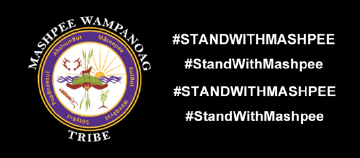
On March 27 United States Secretary of the Interior David Bernhardt ordered that the Mashpee Wampanoag Tribe disestablish its tribe’s reservation, located in Mashpee and Taunton, Massachusetts. As an environmental organization, Clean Water Action recognizes that the history of colonization and imperialism is inseparable from the degradation of the land and overuse of natural resources to fuel corporate greed. The organization continues to work to be in solidarity with Native communities and to recognize them as original leaders and stewards of the environment.
Clean Water Action took the opportunity to demonstrate this solidarity publicly in a statement of support for the Mashpee Wampanoag’s right to be able to continue to govern their ancestral homelands. Clean Water Action encourages its members to keep up to date on the situation and amplify the Mashpee Wampanoag’s fight on social media and with your legislators.
Re-elect Ed Markey to the US Senate
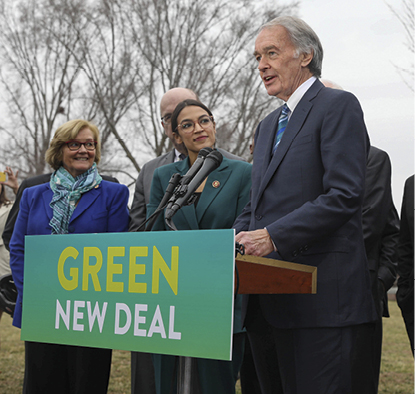
Clean Water Action is proud to endorse Ed Markey for re-election to the US Senate! Ed is a champion of the environment and public health who has been actively fighting climate change and toxic pollution in Congress for over 30 years. Today he is the lead Senate sponsor of the Green New Deal — partnering with House sponsor Alexandria Ocasio-Cortez. We need his leadership in the fight to stop the climate crisis!
Mark your calendar and make sure to vote in the primary election, Tuesday, September 1st (the Tuesday before Labor Day)! We’ll make sure to share information about how to vote while keeping yourself safe from Coronavirus in the weeks leading up to the election.
Read more here: https://cleanwateraction.org/features/clean-water-action-endorses-ed-markey-us-senate
RHODE ISLAND
A Safe and Healthy Rhode Island
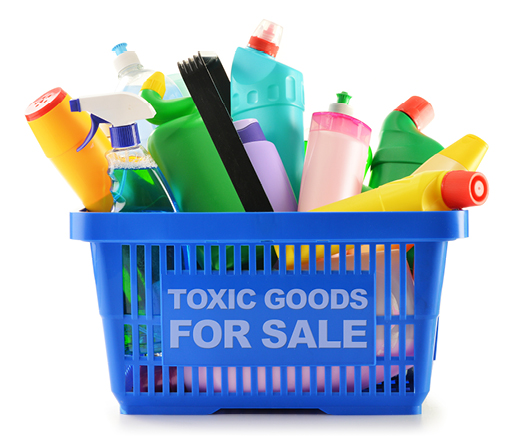
Clean Water Action has worked for many years to reduce health risks from harmful and toxic chemicals found in every day products. As part of the “Mind the Store” campaign, Clean Water organizes communities to use people power to get retailers to stop selling toxic products, like during the national campaign in 2018 to get Lowe’s to stop selling paint stripper containing methylene chloride, a dangerous chemical that affects the nervous system and can cause death.
While Clean Water Action campaigns to get stores to stop selling these dangerous products, whether voluntarily or through policy, the organization is also working to limit the health risks from toxic chemicals and to limit the pathways of exposure to chemicals that remain on the market. One way we are doing this is by working with local governments and institutions to limit the exposure of employees and members of the public that visit public buildings, parks, and other facilities. Here in Rhode Island, Clean Water has partnered with the Providence’s Purchasing Department and Office of Sustainability to help the city make safer and healthier purchasing decisions.
We have started with efforts to create a purchasing screen with the city’s office supply vendor to ensure that any products independently purchased by city staff will not harm staff members or residents that are exposed to them. The next steps are to develop a Sustainable Procurement Policy to address toxic chemicals in bulk purchasing. This could include anything from janitorial and cleaning supplies to building materials to food packaging to automobile detailing. When the purchasing department sends out requests for proposals (RFPs) for these items and services, a Sustainable Procurement Policy will require the city to consider the health impacts of these products. The idea is that the city uses its purchasing power to both protect employees and residents and drive markets towards safer products.
Finally, Clean Water Action is partnering with the city and other organizations to limit pathways to exposure from chemicals found in pesticides. Many of the chemicals found in pesticides in commercial and residential applications are toxic and harmful to both humans and wildlife. We know that neonicotinoids — a popular insecticide — are deadly to pollinators like bees, butterflies, and birds, but they are also known to be disruptive to the human endocrine system. Glyphosate, the chemical found in RoundUp products, has also been identified as likely carcinogenic to humans. Use of these products pose health risks for homeowners, children, and pets. For workers in the landscaping and agricultural industry, who are exposed to these products on a daily basis, the risks are far greater.
Thankfully, the City of Providence’s Parks Department uses only organic, non-toxic products in city park and on city properties, but the owners of residential and commercial properties can still use the toxic products — current state law actually prohibits municipalities from passing ordinances to ban their use altogether. So we are working with our partners to launch an outreach program to educate Providence residents about the risks of toxic pesticide use and get them to sign a sustainable lawn and garden care pledge.
Toxic chemicals are found in almost every aspect of our lives, so whether through direct action, policy, or community organizing, we are doing everything we can to limit Rhode Islanders’ exposure to them.
CONNECTICUT
Tackling PFAS Contamination
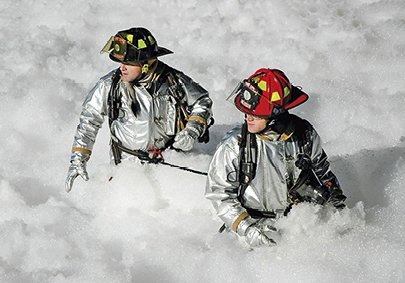
The disastrous spill of 40,000 gallons of firefighting foam into the Farmington River in 2019 was a major wake up call to the toxic harms of per- and polyfluoroalkyl substances or PFAS. This class of almost 5,000 chemicals is found in firefighting foam, anti-stick cookware, food packaging, stain resistant textiles, water resistant outdoor gear and used in many industrial applications. These forever chemicals don’t break down in the environment, are not destroyed fully by incineration and get into soil, groundwater and have contaminated drinking water sources across the U.S. They are linked to certain cancers, reproductive disorders, liver damage and immunosuppression.
Clean Water Action is leading the way in Connecticut to raise awareness on the health and environmental harms of PFAS and to advance comprehensive policies to restrict these chemicals in products. Clean Water Action is supporting a bill to restrict firefighting foam containing PFAS for training and shifting to fluorine-free foam in two years and a bill to ban the use of food packaging that contains PFAS.
Unfortunately, COVID-19 interrupted the legislative session but the work continues. After the spill, the Governor appointed a task force to take comprehensive actions. Clean Water Action participated in the meetings and continues to work collaboratively with agency officials to make real progress on PFAS. Current accomplishments include:
- Immediately halting PFAS containing firefighting foam for training,
- Developing a take-back program of firefighting foam by the state,
- Prioritizing the implementation of testing of water bodies and high risk sites such as landfills, and
- Supporting legislation that restricts PFAS in food packaging as soon as possible, reviewing state of the art research and best practices for foam disposal and adopting a health protective drinking water standard.
The Governor’s team is deeply committed to addressing PFAS in a comprehensive manner and continues to work closely with Clean Water Action. This summer and fall, we are hosting a series of webinars and screening the film “Dark Waters” to further raise awareness on the harms of PFAS and engage more residents in the work ahead.
Pressing for Bold Climate Action Requires Energy Efficiency
Energy efficiency and actions to reduce energy consumption are a critical component of meeting bold carbon reduction goals. Reducing demand on fossil fuels through energy efficiency measures in homes and other buildings, with insulation and weatherization measures, using more energy efficient appliances and lighting, makes homes, schools and offices more comfortable, reduces energy costs and cuts carbon emissions.
Clean Water Action’s Connecticut team coordinates the CT Energy Network, a coalition of energy task force leaders from more than sixty towns across Connecticut, along with our partners at People’s Action for Clean Energy (PACE), to ramp up energy efficiency programs, policies and initiatives across the state. We successfully advocated for no further raids to the energy efficiency funds, which support the state’s energy efficiency programs and continue to work with the Governor’s Council on Climate Change to assure that these programs are expanded to assure that the state is meeting its goal of weatherizing 80% of homes by 2030.
Our semi-annual meetings, forums for networking and education, will now be held quarterly as demand and participation grows. The CT Energy Network is eager to learn about programs and financing options for local actions such as net-zero schools, renewable energy projects on town buildings and getting more towns to adopt resolutions for 100% clean, renewable energy. Connecticut has a strong tradition for home rule and local action and Clean Water Action’s Energy Network continues to be a leading force, involved at all levels, driving local decisions and state policy.

